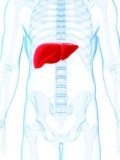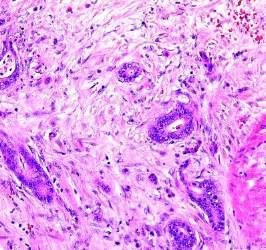AT THE LIVER MEETING 2016
BOSTON (FRONTLINE MEDICAL NEWS) – A novel therapeutic approach to nonalcoholic steatohepatitis could one day mean sufferers of this severe form of nonalcoholic fatty liver disease have an alternative to transplantation.
Preclinical findings from a study using mesenchymal stem cells adapted from unsuitable organs for transplant have shown promise in suppressing inflammation in nonalcoholic steatohepatitis (NASH).
Kris Gellynck, PhD, manager of research and development at Promethera Biosciences in Brussels, will present data at this year’s annual meeting for the American Association for the Study of Liver Diseases showing that it was possible to decrease nonalcoholic liver disease scores by using what would be marketed as an “off the shelf” product. HepaStem has been classified by the European Medicines Agency as a medicinal product, and is comprised of human adult liver–derived mesenchymal stem cells cryopreserved and reconstituted as needed.
By adding an inflammatory cocktail to cell cultures, with or without immunosuppression with cyclosporine, Dr. Gellynck and his colleagues were able to provoke secretion of anti-inflammatory and antifibrotic cytokines. HepaStem was shown to inhibit the T-lymphocyte response to the inflammation and also suppress the dendritic cell generation and function in co-culture experiments. In a NASH disease model culture, the immunosuppression did not solely affect disease progression, but cell-based treatment significantly and dose-dependently decreased collagen levels. A single HepaStem injection “significantly” decreased the nonalcoholic fatty liver disease activity disease score, supporting the proposed mechanism of action, namely reduced inflammation.
Dr. Gellynck and his colleagues believe their findings warrant phase I/II studies in humans with NASH.
All study workers are employed by Promethera Biosciences.
On Twitter @whitneymcknight





